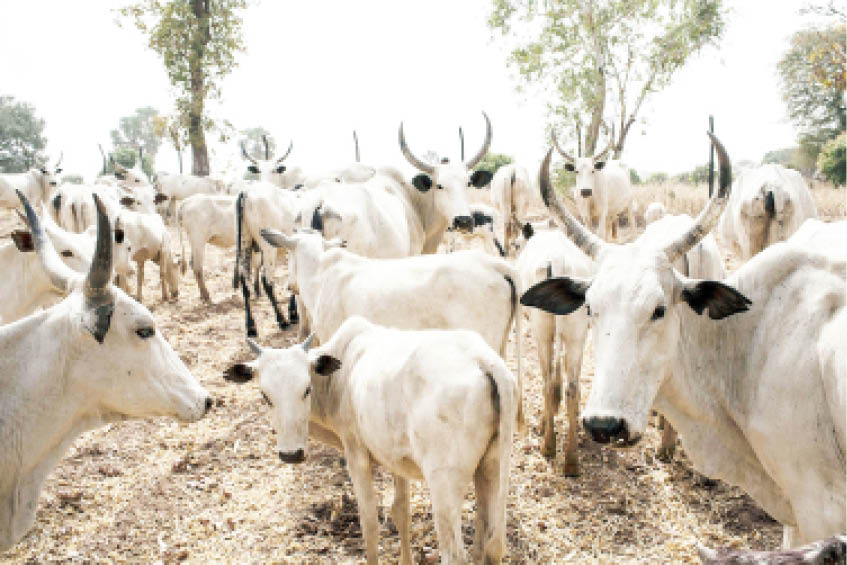Nigeria’s federal and state governments are struggling to implement a National Livestock Transformation Plan that seeks to curb the movement of cattle across the country and reduce deadly herder-farmer conflict. While the Plan has earned the endorsement of many state governments, it faces significant challenges. Deficient political leadership, popular misperceptions about its purpose, budgetary constraints aggravated by the COVID-19 pandemic, a lack of personnel with the expertise to carry it out and widespread insecurity, are all hindering progress. If the Plan fails as previous initiatives to modernise livestock management did, herder-farmer violence could escalate.
Approved by the National Economic Council in January 2019, the Plan represents the most comprehensive effort to overhaul Nigeria’s inefficient and grossly underperforming livestock system. At the core is a strategy to curtail migratory or open grazing, and thus, lower the risk of conflict between herders and farmers. It is animated by the hope that over a period of 10 years, predominantly nomadic pastoralists will be persuaded to move their cattle into ranches and public grazing reserves, where breeding farms and other mechanised livestock management practices are to bolster the sector’s productivity.
By the end of 2028, authorities aim to have at least 119 ranches operating in all participating states, creating over two million jobs in the livestock production, processing and marketing chains.
President Muhammadu Buhari’s administration came up with the Plan following a wave of violence between herders and farmers, particularly a surge in related violence afflicting rural dwellers in 2018.
The federal government, which has committed to funding 80 per cent of the transformation proposals submitted by participating states, has taken preliminary steps toward putting the Plan into practice, including providing technical support to help states prepare for implementation, such as help with field surveys and site mapping.
Several states have reactivated earlier demarcated grazing reserves, opened offices and set up steering committees to administer the Plan. Authorities have also held workshops and done other works to explain the benefits of livestock reform to a larger audience.
But two years into the 10-year plan, the first new ranch is yet to be built, and the obstacles are many.
Opposition, partly among herders, predominantly from the Fulani ethnic group but also among farmers who resent the Plan’s benefits to pastoralists, hinders reform efforts.
Distrust is widespread in the Middle Belt, which has been the scene of violent disputes over land between herders and farmers, notwithstanding peacemaking and military efforts that since 2018 have reduced the bloodshed.
Federal and state budgets are pinched, partly due to the pandemic’s economic fallout, and the country lacks sufficient technical expertise for managing ranches and grazing reserves. In many states, especially in the North-West, the proliferation of criminal gangs and other armed groups is cutting off access to grazing reserves and scaring away potential investors.
Unless addressed, these and other problems could delay or even scuttle the Plan, leaving the country vulnerable to an escalation of herder-farmer conflict, which could degenerate into wider ethnic, regional and religious violence.
Tackling these challenges requires a concerted effort by federal and state authorities, with help from donors and investors. First, Abuja and supportive state governments should provide stronger political leadership and improve public communication to dispel misgivings and misperceptions about the Plan. These are especially prevalent among pastoralists, who will be asked to change a centuries-old nomadic lifestyle, and who legitimately doubt the Plan’s promises about available pasture.
But many farmers are fearful too, that they may lose land to livestock producers. Many in the Middle Belt and southern states remain deeply suspicious of the Plan’s long-term goals, which they see as creating privileges for herders, and more broadly, the Fulani.
With Abuja and other partners’ support, state governments must build expertise and technical capacity, especially for managing ranches and grazing reserves, dairy production and meat processing.
Federal and state governments should also up budgetary commitments, hasten the release of funds and provide financial transparency to ensure accountability, working with donors and investors as necessary. Addressing rural insecurity, curbing impunity and rehabilitating communities adversely affected by earlier violence in participating states are also vital. Plus, authorities will need to consider climate change’s likely impact and reach a decision about how the transhumant herders who cross into Nigeria seasonally should or should not benefit from the Plan.
While some of these steps will take time, the Plan’s proponents should focus on delivering concrete, visible results on a relatively short-term basis. Less than two years from now, the country will hold general elections. If the Plan is to survive the change of government that will follow, politicians may need to be able to produce clear proof of its benefits (Having served two terms, President Buhari and many state governors are ineligible to compete, meaning that change is certain.) Ideally, by the time campaigning heats up in late 2022, the Plan’s backers should be able to point to at least a handful of newly constructed ranches or rehabilitated reserves, strong donor and investor commitments, and the first of a cadre of newly trained livestock management professionals.
None of this will be easy, but the Plan is worth the effort. While far from perfect, it offers an important chance to reform Nigeria’s livestock system with a strategy that addresses the needs of both herders and small-scale farmers. About 70 per cent of Nigeria’s workforce earns an income through agriculture. Modernising the livestock sector could boost the country’s prosperity overall at the same time that it takes a big step toward resolving one of Nigeria’s most dangerous conflicts.
With the clock ticking down to the 2023 elections, federal and state authorities will need to move quickly to make a visible mark, lest the work they have done to create this moment of opportunity be lost.
This piece is an executive summary of a report on the National Livestock Transformation Plan (NLTP) and how to hasten its implementation, published by the International Crisis Group.




